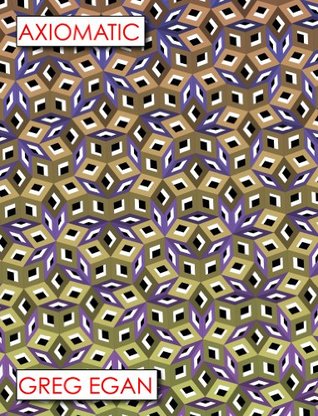More on this book
Community
Kindle Notes & Highlights
The future has always been determined. What else could affect human actions, other than each individual’s – unique and complex – inheritance and past experience?
Our lives resonate like plucked strings, standing waves formed by the collision of information flowing back and forth in time.
there was no Will of God, no Force of History to absolve us. It grew out of who we were: the lies we’d told, and would keep on telling. Half a million people slaughtered in the spaces between the words.
Paranoid right-wing groups (who for decades had claimed that their racism was “logically” founded on cultural xenophobia rather than anything so trivial as skin color)
Everyone has conflicting desires, and people can grow tired of both wanting and not wanting the very same thing.
A pattern of light on your retina doesn’t mean a thing until it’s been analyzed: that means everything from detecting edges, detecting motion, extracting features from noise, simplifying, extrapolating – all the way up to constructing hypothetical objects, testing them against reality, comparing them to memories and expectations … the end product is not a movie in your head, it’s a set of conclusions about the world.
it doesn’t arise automatically just because the data was gathered through your eyes. And it’s not the only possibility: we all build other models, all the time; most people can imagine their surroundings from almost any angle—”
the notion of human consciousness as “software” that could be “implemented” equally well on an organic brain or an optical crystal was in fact a throwback to Cartesian dualism: for “software” read “soul.”
A sufficiently flexible neural net can be configured by feedback to mimic almost any system – to produce the same patterns of output from the same patterns of input – but achieving this sheds no light whatsoever on the nature of the system being emulated.
“Understanding,” the lecturer told us, “is an overrated concept. Nobody really understands how a fertilized egg turns into a human. What should we do? Stop having children until ontogenesis can be described by a set of differential equations?”
At what magic percentage, then, would you stop being ‘you’?”
This is all I need: grief counseling from my own assassin.
It’s seeing the life of your body as the life of one person that’s the illusion. The idea that ‘you’ are made up of all the events since your birth is nothing but a useful fiction. That’s not a person: it’s a composite, a mosaic.”
The thing about biological drives is, we’re so easily able to fool them, so skilled at satisfying our bodies while frustrating the evolutionary reasons for the actions that give us pleasure. Food with no nutritional value can be made to look and taste wonderful. Sex that can’t cause pregnancy is every bit as good, regardless.
As the unknowable future becomes the unchangeable past, risk must collapse into certainty, one way or another.
We think of our lives as circumscribed by cultural and biological taboos, but if people really want to break them, they always seem to find a way. Human beings are capable of anything: torture, genocide, cannibalism, rape. After which – or so I’d heard – most can still be kind to children and animals, be moved to tears by music, and generally behave as if all their emotional faculties are intact.
(“Intimacy,” I once told Sian, after we’d made love, “is the only cure for solipsism.” She laughed and said, “Don’t get too ambitious, Michael. So far, it hasn’t even cured me of masturbation.”)
Language had evolved to facilitate cooperation in the conquest of the physical world, not to describe subjective reality. Love, anger, jealousy, resentment, grief – all were defined, ultimately, in terms of external circumstances and observable actions. When an image or metaphor rang true for me, it proved only that I shared with the author a set of definitions, a culturally sanctioned list of word associations.
there were countless references in their literature to the equalizing power of death. Perhaps concluding that the universe would go on without them produced a shared sense of hopelessness, or insignificance, which they viewed as their defining attribute. Now that it’s become an article of faith that, sometime in the next few billion years, physicists will find a way for us to go on without the universe, rather than vice versa, that route to spiritual equality has lost whatever dubious logic it might ever have possessed.
but there was something extravagant in supposing that the nature of consciousness could be radically different between individuals, when the same basic hardware, and the same basic principles of neural topology, were involved.
You know, half the time when I’ve told you something that happened before we met, the memory of the telling has become far clearer to me than the memory itself. Almost replacing it.
This neat division of “memory” and “personality” Bentley uses; is it really so clear?


